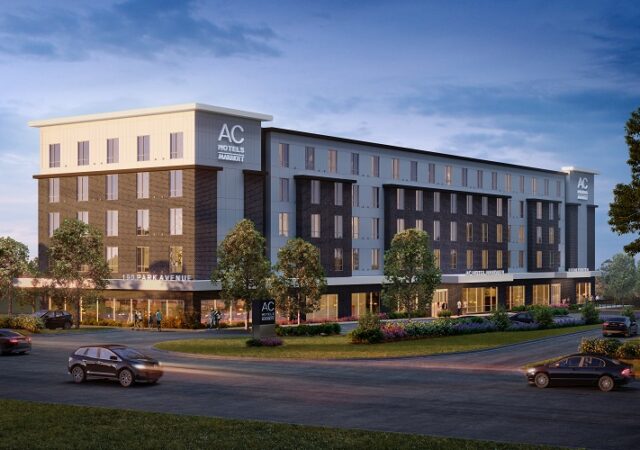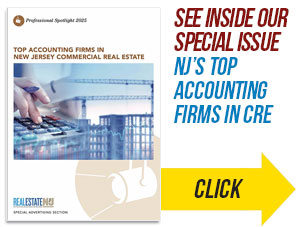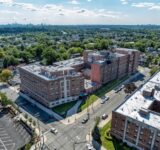As it has through past economic cycles, Cole Schotz has continued to pivot as the real estate market and businesses respond to COVID-19. Our real estate team leverages a deep bench of experience, including our corporate, environmental, special opportunities, litigation and bankruptcy teams, with a wealth of experience providing advice on real estate matters. We have been helping our clients adapt to a rapidly changing market.
Sponsored Content
Inglesino, Webster, Wyciskala & Taylor LLC
We represent developers and property owners in suburban and urban areas. Our clients engage in a variety of uses, including multifamily, industrial, mixed use, golf, retail, office, hotels, automobile dealerships, industrial, self-storage and schools. The Firm also serves as redevelopment counsel and board attorneys for governmental entities.
William H. Connolly
Our clients choose William H. Connolly over the competition because we prioritize integrity and customer service above all else, and we provide the best insurance products at competitive prices, as well as a host of truly valuable claims and risk management services at no additional cost. We have been providing these services for nearly seventy years. We regard each of our clients as unique and serve them with utmost attention and professionalism, and we take great pride in the longstanding relationships we have with them.
Professional Spotlight: EPIC Insurance Brokers & Consultants
EPIC is a unique and innovative retail risk management and employee benefits insurance brokerage and consulting firm, founded in San Francisco, California in 2007 with offices and leadership across the country. EPIC Insurance Brokers & Consultants has a depth of industry expertise across key lines of insurance, including risk management, property and casualty, employee benefits, unique specialty program insurance and private client services.
USI Insurance Services
USI invests in people, processes and technology to bring the most innovative risk management solutions to our clients. What truly distinguishes USI as a premier insurance brokerage firm is the USI ONE Advantage®, a platform that integrates proprietary business analytics with a network of local and national technical experts in a team-based planning process to identify targeted solutions with financial impact. Our real estate professionals have decades of experience providing property owners, managers and developers with comprehensive, cost-effective risk management and asset-protection solutions. USI’s robust analytics, deep industry expertise, broad insurance company relationships, aggressive claims advocacy and hands-on service deliver superior results.
Planting the Seed for A Greener New Jersey: The Intersection of Legal Cannabis and Real Estate in the Garden State (Part 2)
The current version of the New Jersey Cannabis Regulatory, Enforcement Assistance, and Marketplace Modernization Act, which was passed by the state Legislature on December 17, 2020, provides a framework for legalizing recreational cannabis in the state, including six different classes of licenses to be considered by those looking to enter the cannabis business marketplace. As we discussed in Part I in our series on cannabis, early identification of an ideal region and/or municipality for the proposed licensed premises is critical to success. However, there are a host of other factors and potential snags that an applicant must take into consideration before selecting a location.
Planting the Seed for A Greener New Jersey: The Intersection of Legal Cannabis and Real Estate in the Garden State (Part 1)
Most are undoubtedly aware that, in this past election, New Jersey voters overwhelmingly passed a ballot initiative to legalize the recreational use of cannabis for adults age 21 years or older. Due to our state’s geographic location and dense population, experts predict this marketplace will quickly become a multibillion-dollar industry. As we wait for the cannabis sector to spark up in New Jersey, now more than ever, those interested in joining the industry should evaluate what type of real estate space is best suited for this emerging industry, which will differ based on the type of cannabis license it seeks.
Professional Spotlight: Gilbane Building Co.
Because of Gilbane Building Company’s diverse expertise and capabilities across multiple market segments, we are able to work with a broad base of clients on an array of project types. Our clients range from leading pharmaceutical and life science, health care, financial services, tech and telecom companies to retail, residential and commercial developers, education, public sector and more.
Professional Spotlight: March Associates
When selecting March Associates as your Construction Manager, you are getting a true partner for your real estate development project. March has a teamwork approach to all its projects. We work closely with our clients and team to ensure we deliver the highest-quality product. President Lou March is involved with each project, lending his expertise to our seasoned group of construction professionals.













